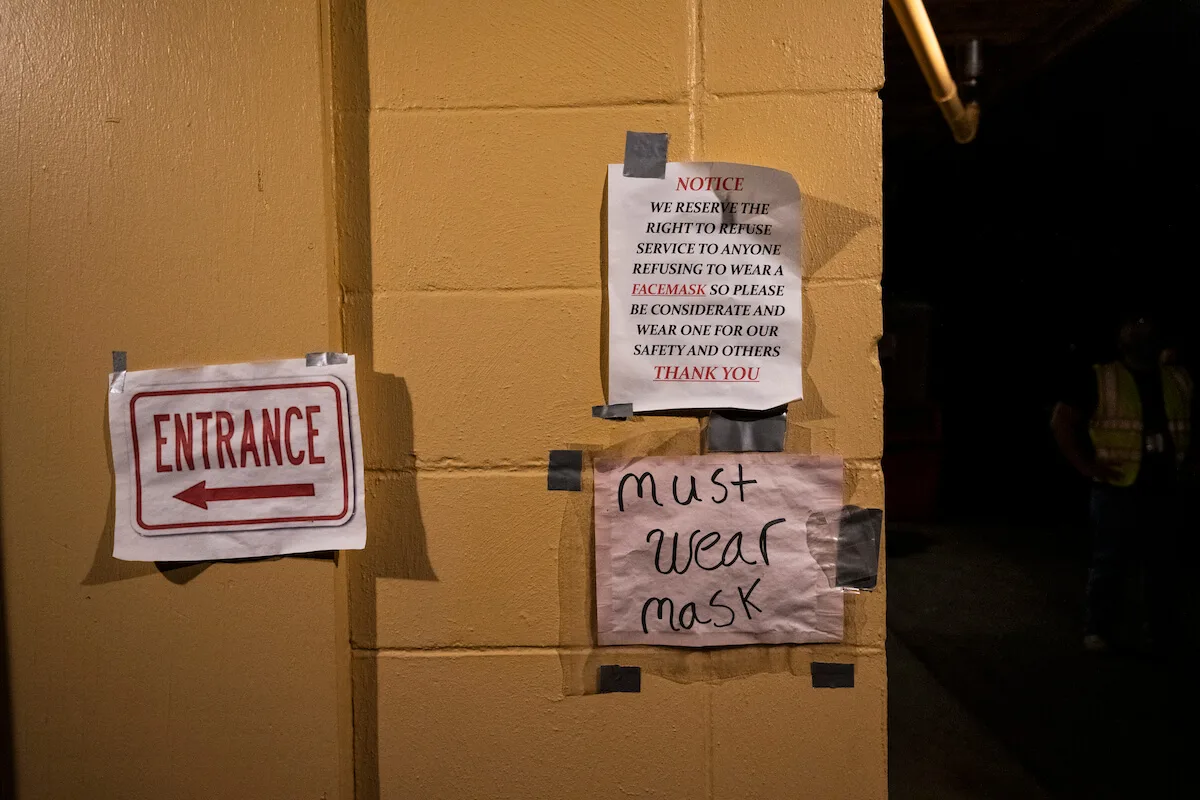
#image_title
The Legislature has the power to vote down safeguards, but filing a lawsuit protects from having to take on-the-record votes.
Appearing via Zoom to guard against the spread of coronavirus, attorney Anthony LoCoco on Monday presented court arguments in favor of a right-wing legal group’s request that a judge immediately suspend Gov. Tony Evers’ third coronavirus-related emergency order that extended the statewide mask mandate through Nov. 21.
The arguments came a week after the Wisconsin Institute for Law and Liberty (WILL) asked St. Croix County Judge Michael Waterman to suspend the mask order on the grounds that Evers had no authority to issue another emergency order related to the pandemic, even as a massive spike in cases catapulted Wisconsin to the status of a national hotspot. State statutes say a governor can only unilaterally declare a state of emergency for 60 days, and WILL claims Evers is using a legally dubious argument that spikes in the pandemic constitute new emergencies.
The Republican-controlled state Legislature, which Assembly Speaker Robin Vos (R-Rochester) and Senate Majority Leader Scott Fitzgerald (R-Juneau) have not convened in nearly six months, threw its support behind WILL’s arguments by filing a brief on its behalf on Friday. Vos and Fitzgerald don’t necessarily need the court case. They could convene the Legislature at any time to take a vote on ending the order.
Waterman, a Scott Walker appointee, seemed skeptical of the conservatives’ argument that the courts need to get involved. It appears as if legislative Republicans filing a brief in support of WILL’s argument actually damaged the conservatives’ case, as Waterman pointed out legislative leaders are asking the judicial branch to do their job for them.
“They’re asking the third branch of government, the judiciary, to step in and exercise the power the legislature reserved to itself,” Waterman said.
However, LoCoco painted Evers’ extension as an abuse of power that only the government’s judicial branch could stop.
“It’s the law [that emergency orders cannot last longer than 60 days], but ultimately the governor disregarded it,” LoCoco said.
“Isn’t the check against that abuse of power the Legislature’s own ability to terminate the executive order, the emergency, at any time?” Waterman responded.
Assistant Attorney General Colin Hector compared the coronavirus pandemic to a river that frequently floods. Just like a river having potential for multiple flood events that would undoubtedly be considered standalone emergencies, Hector said, the pandemic can ebb and flow in ways that it creates multiple emergencies.
“[The new emergency order] was based on a distinct change in circumstance that is presenting extraordinary dangers to the state of Wisconsin,” Hector said.
The recent coronavirus spike in Wisconsin, sparked by K-12 schools and colleges resuming classes, has led to record-high levels of death and new cases. The state logged about 46,000 new cases in September, and now stands at 134,359 cases, according to the Department of Health Services. A total of 1,381 Wisconsinites have now died from the virus.
Waterman promised a decision “very, very quickly” but did not give a timeframe.

Wisconsin Democrats propose new gun safety measures on campus
A new bill would allow firearms to be banned campus-wide rather than building by building. Saying current rules don’t go far enough to assure safety...

Evers and Baldwin highlight plans to fight the opioid epidemic in Wisconsin
Sen. Tammy Baldwin is working on a bipartisan package to stop fentanyl at the southern border, while Gov. Tony Evers is increasing the supply of...

Wisconsin’s Safest Cities: Where Does Yours Rank?
Wisconsin is the 13th safest state in America, according to the latest rankings from SafeWise. But which cities are the safest? Analysts used...

Evers Signs Two Bills Aimed at Preventing Another Rape Kit Backlog
The bipartisan bills will establish new guidelines to help sexual assault victims see justice sooner. Two bills were signed into law Monday to...



